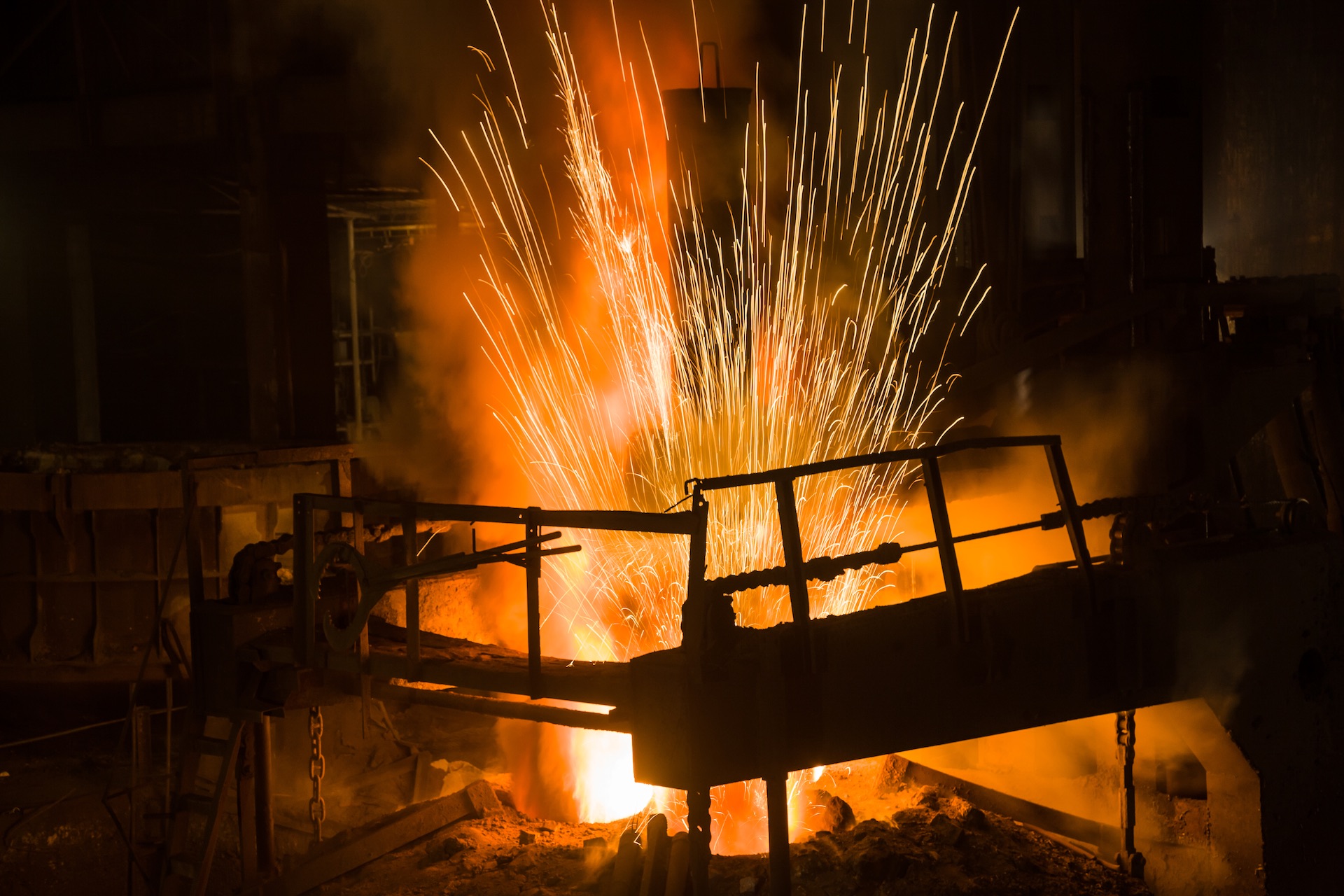The steel and iron industries have proud histories. In many ways, steel and iron were the economic engines that drove the development of our cities and provided work and a better life for many Americans. To this day, foundries still produce a number of different metal products used in industries all across the country.
As the steel and iron industries have advanced with the years, though, safety regulations within them have struggled to keep up with the times. Working in a foundry is inherently dangerous due to the extremely high temperatures — often in excess of 1,000 degrees Fahrenheit — reached by the molten metal used to produce steel, iron, and metal alloys. When safety standards and protocols are not given the fullest attention, the present dangers will only worsen.
COMMON FOUNDRY HAZARDS
There are several different types of melting furnaces used in foundries, and they all present unique hazards.
Different types of furnaces and the potential dangers they cause:
- Arc furnaces utilize electric arcs (like bolts of lightning) that can reach temperatures hotter than the sun.
- Reverberatory furnaces use combustible gases that can explode if they are not properly contained.
- Induction furnaces use water-cooled coils to produce an electromagnetic field that turns solid metal into a molten state.
The use of water in a foundry can be particularly dangerous, too. Due to the high temperatures of molten metal, any water or liquid that comes into contact with the metal bath will immediately flash to steam and expand at a great rate, which can cause the metal to erupt out of the furnace. For this reason, the introduction of moisture into a furnace presents probably the greatest hazard to foundry workers.
FOUNDRY EXPLOSIONS CAUSED BY NEGLIGENCE
Foundry explosions caused by moisture in a furnace should not happen if all safety rules are followed to the letter. When safety is forgotten or relaxed even a little bit, water-based foundry explosions can still occur in a number of ways. For instance, a supplier of raw materials for use in a furnace might negligently fail to make sure that its products are free of moisture or wet materials. Or, if a furnace with a water-cooled component is defective or not properly designed, the results can be catastrophic.
At Glenda Cochran Associates, we have extensive experience investigating explosions involving a number of different types of furnaces and have proudly represented individuals injured while working in foundries. If you or someone you know has been injured or killed in a foundry explosion or fire, you should seek legal counsel immediately. Contact our law firm and see how we can help – we work with explosion injury clients nationwide.
